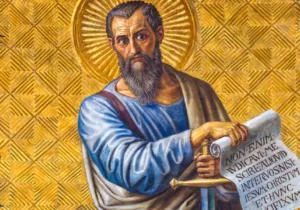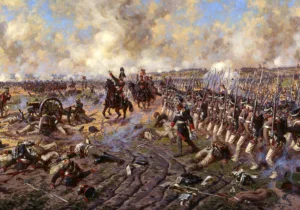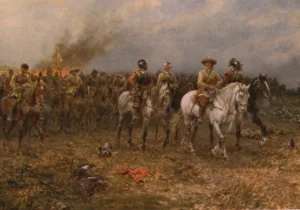The Holy Week Reader—Friday: Kavod! The Weight of Glory
Peter Paul Ruben’s extraordinary “Raising of the Cross” helps reflect on Divine love, human flourishing, and the weight of glory.
Marc LiVeccheMarch 29, 2024
A Tale of Two Cities: What the Cross of Christ Did (And Didn’t Do)
The Holy Week Reader: Palm Sunday witnessed the rise of two cities in the world of humanity. Christians are citizens of both. Attendant responsibilities follow.
Marc LiVeccheMarch 24, 2024
Russia: Orthodox by Culture, Imperialist by Nature
How Russia’s national security doctrine gobbled up the orthodox church.
Kristóf György Veres & Mónika PalotaiJanuary 23, 2024
Our Political Theology Shouldn’t Start at Romans 13
Romans 13 is an important scripture in political theology, but it is not the only relevant scripture for Christians in politics
Tim MiloschNovember 2, 2023
Anglicanism vs. Polarization
Anglicanism vs. Polarization will take place over Oct. 20-21.
Ryan N. DankerOctober 17, 2023
Katechon or Satan? The Russian Deception
“Holy Rus'” is an essential concept in Russian mythology, but also eschatology
Matija ŠtahanOctober 9, 2023
The Dark Legacy of Tsarist Philosopher Ivan Ilyin
Among Putin’s favorite political theorists is Ivan Ilyn, defender of the tsarist trinity: Autocracy, Orthodoxy, Nationality
Simon MaassSeptember 6, 2023
Just War 101 — E6: Just Cause
The presence of certain kinds of evil in the world–including aggression against the innocent–signal the possibility that war must be.
Marc LiVeccheApril 29, 2023
On Earth as it is in Heaven?
Contemporary debates over ‘Christian nationalism’ have surprising roots in 17th century debates over republicanism versus monarchism.
Howe D. Whitman IIIApril 26, 2023










 Sponsor a student for Christianity & National Security 2024
Sponsor a student for Christianity & National Security 2024